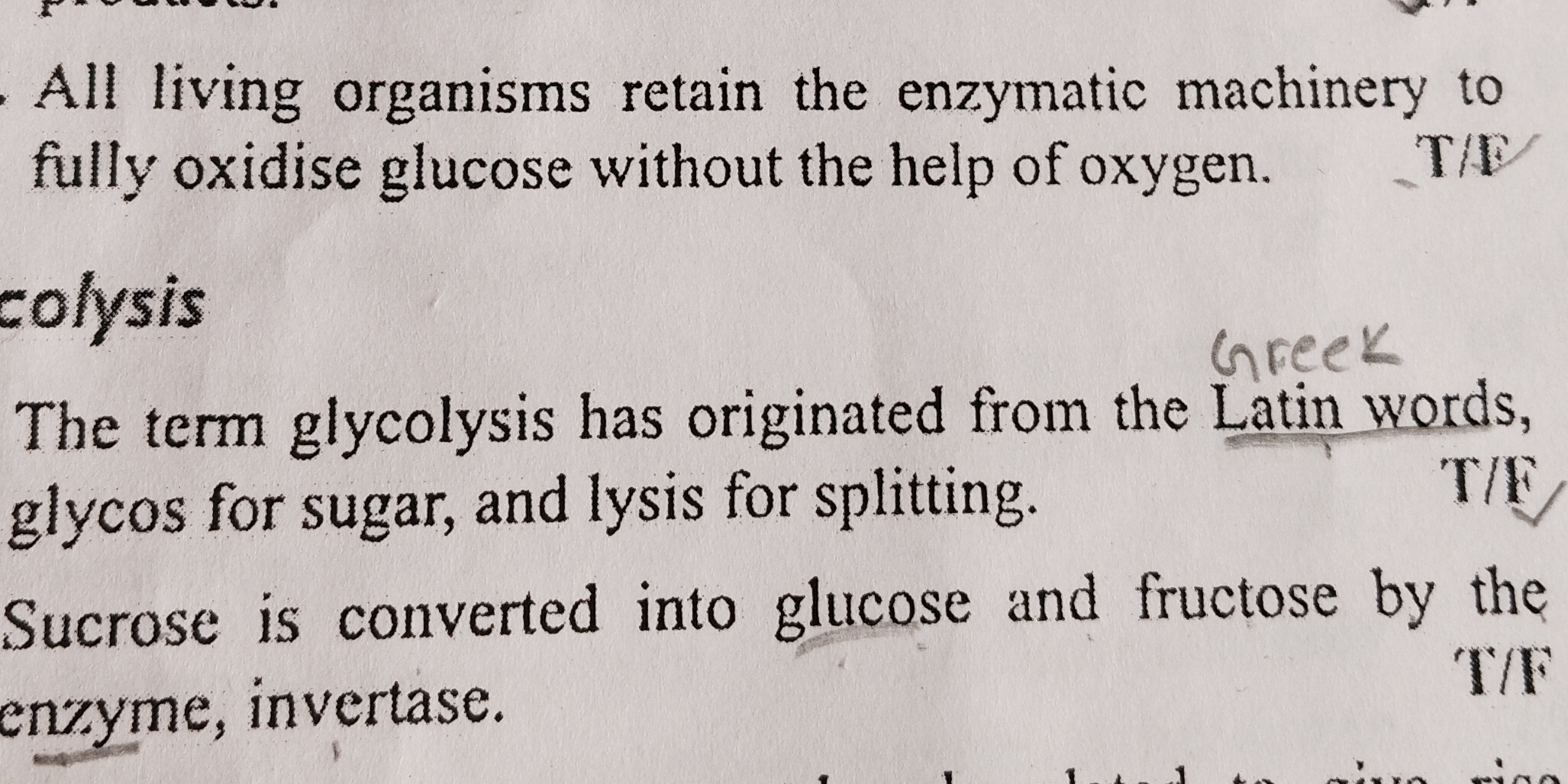All living organisms retain the enzymatic machinery to fully oxidise glucose without the help of oxygen. True or False? The term glycolysis has originated from the Latin words, gly... All living organisms retain the enzymatic machinery to fully oxidise glucose without the help of oxygen. True or False? The term glycolysis has originated from the Latin words, glycos for sugar, and lysis for splitting. True or False? Sucrose is converted into glucose and fructose by the enzyme, invertase. True or False?

Understand the Problem
The question examines statements about glycolysis and its processes, asking whether they are true or false. It aims to clarify concepts related to glucose oxidation and the origins of the term 'glycolysis'.
Answer
False, False, True.
All living organisms retain the enzymatic machinery to fully oxidize glucose without oxygen: False. The term glycolysis has originated from Latin words: False. Sucrose is converted into glucose and fructose by invertase: True.
Answer for screen readers
All living organisms retain the enzymatic machinery to fully oxidize glucose without oxygen: False. The term glycolysis has originated from Latin words: False. Sucrose is converted into glucose and fructose by invertase: True.
More Information
Glycolysis is an anaerobic process where glucose undergoes partial oxidation. The term comes from Greek words 'glycos' (sugar) and 'lysis' (splitting). Invertase breaks down sucrose into glucose and fructose.
Tips
A common mistake is assuming all organisms use oxygen to oxidize glucose or misidentifying the language of origin for technical terms.
Sources
- All living organisms retain the enzymatic machinery to partially oxidise glucose - doubtnut.com
- 7.2: Glycolysis - Biology LibreTexts - bio.libretexts.org
- 14.2 GLYCOLYSIS - AskFilo - askfilo.com
AI-generated content may contain errors. Please verify critical information